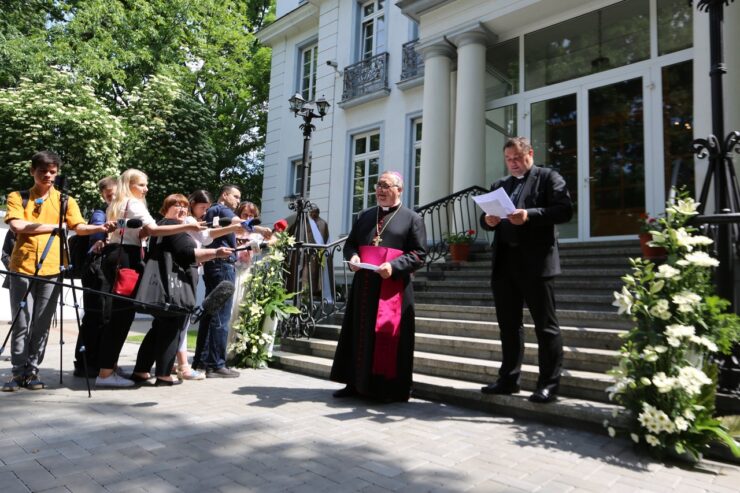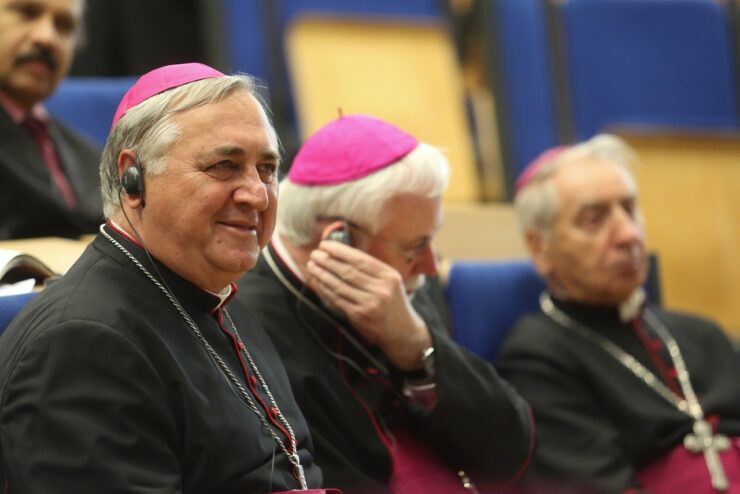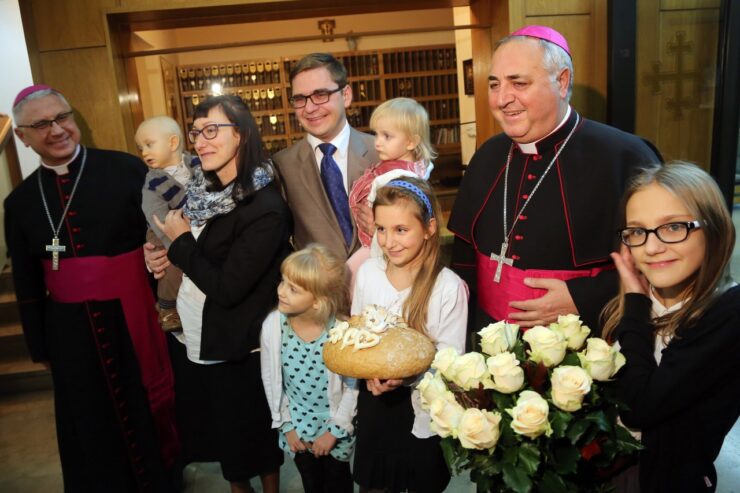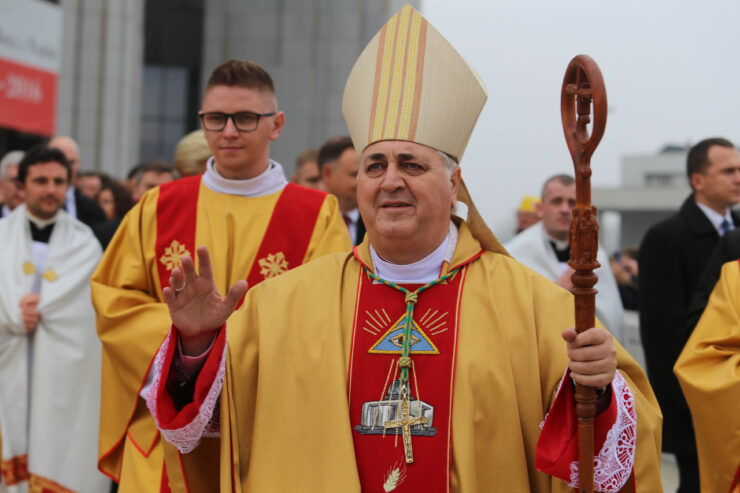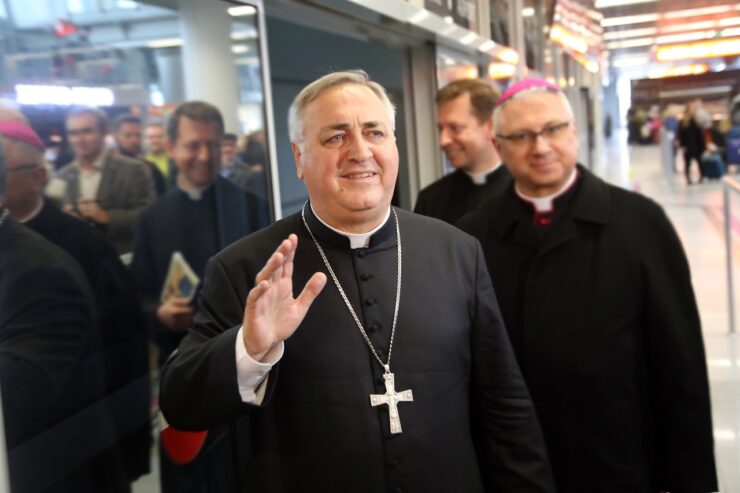Eleven diplomatic missions, carried out on five continents and entrusted by three popes. A diplomat and a missionary, ready to follow Christ to the ends of the world, a veritable “globetrotter of the faith” – Archbishop Salvatore Pennacchio, Apostolic Nuncio to Poland, has been appointed President of the Pontifical Ecclesiastical Academy in Rome. This is how Angelo Scelzo describes the prelate in Mattino di Napoli daily.
After 44 years of living on the road, Archbishop Salvatore Pennacchio returns to the Eternal City to share his experience and expertise with priests who are preparing for ministry in the Vatican diplomacy.
Pope Francis has invariably repeated to apostolic nuncios: “always keep your suitcase at hand.” As Angelo Scelzo observes, when we look closely at the prelate’s curriculum vitae and the number of posts he has been assigned to, the Apostolic Nuncio to Poland Archbishop Pennacchio has only rarely had the time to unpack his suitcase.
The list of countries in which Archbishop Pennacchio has worked is indeed long. His first independent assignment in 1999 was to Rwanda, a country on the threshold of the difficult process of reconciliation between the Tutsi and Hutu tribes after a massacre which has left more than a million people dead.
Subsequently, for thirteen years, the Archbishop worked between Thailand, Singapore and Cambodia, with an apostolic delegation extended to Myanmar, Laos, Malaysia and Brunei. In 2010, before returning to Europe, he was head of the nunciature in India and Nepal.
His last post was Poland, where until yesterday he carried out a difficult mission at the border between Europe and Ukraine resisting the Russian invasion.
If we add to this the years prior to his episcopal ordination, we see a true nuncio, a “globetrotter of the faith.” Archbishop Pennacchio began his diplomatic mission as early as 1979 in Panama, followed by Ethiopia, Australia, Turkey, Egypt, former Yugoslavia and Ireland, highlights Angelo Scelzo.
He has seen different countries and different worlds, presenting a remarkable variety of challenges for the Church and its representatives. The war in the former Yugoslavia, the drama of drought and famine in Ethiopia, the tensions caused by liberation theology in Panama, the patient confrontation with the Islamic world from countries in the Middle and Far East, or the drama of the victims of violence and war in Rwanda or Ukraine.
As Angelo Scelzo points out, it is the personality of the nuncio-missionary, who serves generously his neighbour both at the negotiating table, where he is calm and composed, and even more so being close to the suffering, that makes him an extraordinary figure. “It is the Neapolitan generosity of a man who shares in an extraordinary way with those in need that is the most prominent feature of his character.”
In a letter to the Polish Catholics after his appointment was announced, Archbishop Pennacchio wrote: “I take with me unforgettable memories of eleven diplomatic missions on five continents, entrusted to me by three Popes, St. John Paul II, Benedict XVI and Francis, to whom I am immensely grateful.”
“Often he would pack his bags, but even more often did the nuncio from Naples leave his heart in the places to which the Pope sent him. (…) In Piazza della Minerva, he would have to step up to the cathedral and introduce future nuncios of the Holy See to the +diplomatic career+. But the fundamental +textbook+ will certainly be his witness. A suitcase always at hand and a heart always open and warm. These, in the end, will be the +tools of the craft+ that the nuncio from Naples will first of all show to his students,” notes Angelo Scelzo.

